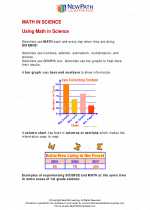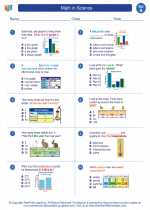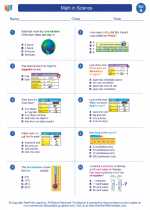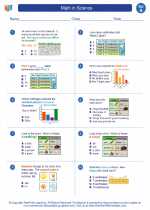Appearance
Appearance refers to the way something looks or how it appears to our eyes. In science, we can observe and describe the appearance of different objects, animals, and plants. We can use our senses, such as sight and touch, to explore and categorize the appearance of things around us.
Study Guide
- Observation: Explain to the students that observation means using our eyes to look at something carefully. Show them different objects and ask them to describe what they see.
- Colors and Shapes: Discuss the different colors and shapes that objects, animals, and plants can have. Encourage the students to identify and name the colors and shapes they observe.
- Textures: Introduce the concept of textures by showing examples of objects with smooth, rough, soft, or hard surfaces. Have the students touch and feel the textures of these objects.
- Comparing Appearances: Teach the students how to compare the appearances of different objects. Have them identify similarities and differences in the appearances of various items.
- Recording Observations: Explain the importance of recording observations. Provide simple tools such as drawing and coloring materials for the students to record what they see.
By exploring the topic of appearance, students can develop their observation skills and learn to appreciate the diversity of appearances in the world around them.
.◂Science Worksheets and Study Guides First Grade. Math in Science
Study Guide Math in Science - 1st grade level
Math in Science - 1st grade level  Worksheet/Answer key
Worksheet/Answer key Math in Science - 1st grade level
Math in Science - 1st grade level  Worksheet/Answer key
Worksheet/Answer key Math in Science - 1st grade level
Math in Science - 1st grade level  Worksheet/Answer key
Worksheet/Answer key Math in Science - 1st grade level
Math in Science - 1st grade level 

 Worksheet/Answer key
Worksheet/Answer key
 Worksheet/Answer key
Worksheet/Answer key
 Worksheet/Answer key
Worksheet/Answer key

The resources above cover the following skills:
EARTH AND SPACE SCIENCE
Earth’s Place in the Universe
Observe seasonal patterns of sunrise and sunset to describe the relationship between the number of hours of daylight and the time of year (e.g., more hours of daylight during summer as compared to winter).